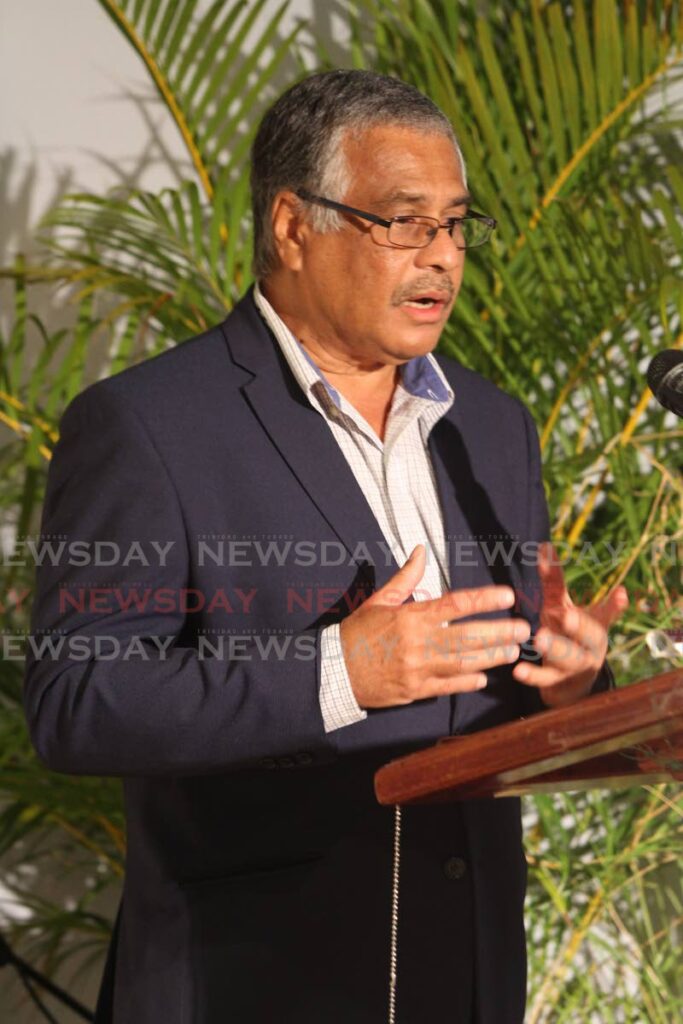Media literacy key to combat misinformation, disinformation

Is media literacy the key to combating misinformation and disinformation?
Well, this was the subject of a conversation hosted by the Caribbean School of Media and Communication (Carimac), UWI Mona Campus, Jamaica; The World Association for Christian Communication (WACC) and the UN Educational, Scientific and Cultural Organisation (Unesco) on November 13.
TT journalist Wesley Gibbings was the main presenter at the conference, titled A Conversation on Media Literacy.
Gibbings said media and information literacy, intrinsically including a higher level of digital literacy, provided the region with the opportunity to achieve a human-rights-compliant approach to addressing issues of misinformation, disinformation and other mass media dysfunction.
He was one of five panellists, who included director of UWI, Mona’s Western Jamaica Campus Dr Patrick Prendergast; secretary general of the Caribbean Broadcasting Union, Barbados, Sonia Gill; president of the Media Institute of the Caribbean, TT-based Kiran Mahara;j and Carimac graduate student Kayla Keane.
Gibbings said the overriding assumption was that equipping consumers of media content with an ability to distinguish fact from fiction and truth from lies had the potential to greatly “diminish the impact of unreliable supply of news, information and other content.”
He added it was an important issue to consider, especially if it was conceded that digital content, in particular, would continue to grow and escape even through “the finest mesh of regulation.
“More prohibition, as attractive as it appears to Caribbean decision-makers, is thus destined to be futile,” he said.
Through demand-oriented media literacy, both direct and collateral social damage could be avoided or minimised.
“The lower the demand, the greater the hindrance to supply,” he said.
It did not provide a comprehensive shield, so most defenders of rights agreed that the protections afforded to the subjects of social media or all media content, under common law and statute, should continue to apply, he said.
Gibbings said even the founding principles of free speech captured by Article 19 of the International Covenant on Civil and Political Rights identified duties and responsibilities and, with them, “widely accepted” limitations.
There were debates over the applications of these limitations alongside what was to be considered on questions of media and information literacy, he said.
Gibbings said there were nuances to consider when it came to this: issues such as defamation, threats to national security, and incitements to discrimination, hostility or violence.
He added there was also the principle that addressed the infringement of other rights, such as privacy.
“This should clear off the air among those under the misguided assumption that people who advocate for freedom of expression are somehow envisaging a situation of untrammelled liberty,” Gibbings said, though it was true that more freedom was preferred over less freedom.
Gibbings said media and information literacy addressed these concerns at several levels by actively engaging a wide cross-section of interested partners, including state and non-state partners, with a special look to those involved in mass communication, and this was not restricted to traditional media.
He added that media literacy was already part of the curricula in schools in some countries. This expanded traditional emphasis on critical-thinking components in the school system, he said.
“One indirect impact of this is that the state becomes specifically involved in administering and evaluating progress on this as a national responsibility.”
There was also the possibility of wider youth engagement, through this, in dissecting and influencing digital trends and becoming advocates for responsible media consumption, Gibbings said.
The conversation included discussion on critical thinking and the structure of news in today’s digital world.
The conversation lasted a little over two hours.

Comments
"Media literacy key to combat misinformation, disinformation"